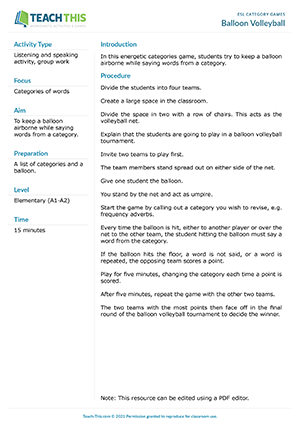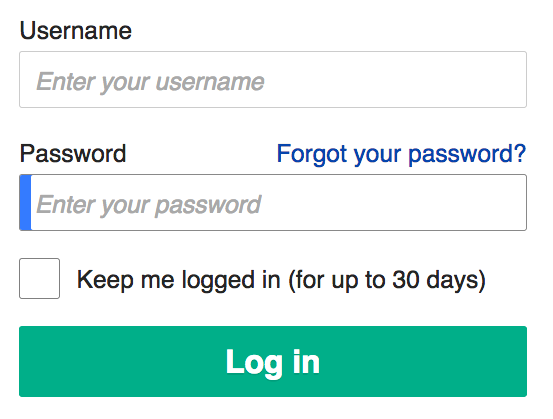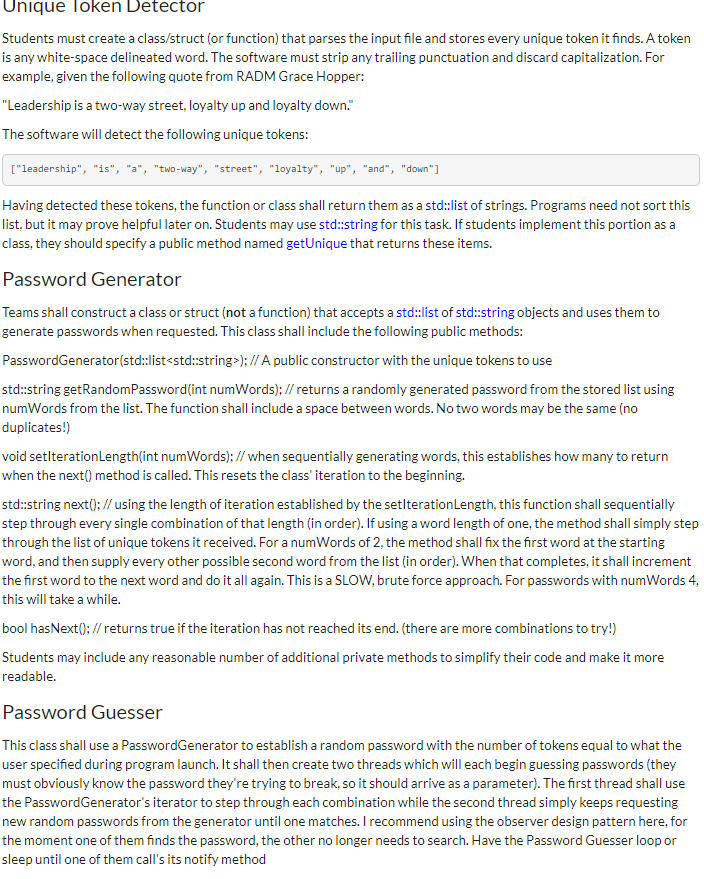Create strong passphrases with EFF's new random number generators! This page includes information about passwords, different wordlists, and EFF's suggested method for passphrase generation. Use the directions below with any set of dice.
And now, a message from internationally renowned security technologist, author, and EFF Board Member Bruce Schneier:
Teams go head to head each round. Artists both draw the same word, and the team who guesses first earns the points. Assign different point values for easy, medium, and hard words. Forgo the dice and just draw cards. This is such a fun game to play, and with the unlimited possibilities for words to draw, you have unlimited options for gameplay! CARDS FOR THE PASSWORD GAME! And these are the cards I told you about in the game. The´re optional, if you don´t want to spend points or ink you can make a list of letters in a paper and tick or cross the right or wrong answers.
Use them to play pictionary, charades, and lots of other games, too! More information Free Printable Word Lists - The Game Gal - play Password, Charades, Cathphrase, etc.
Directions
We’ll walk you through how to use EFF's Long Wordlist [.txt] to generate a passphrase. Nintendo ds lite serial number sticker. For most applications, we suggest making a six-word passphrase.
Step 1: Roll five dice all at once. Note the faces that come up without looking at the wordlist yet. (On our dice, the EFF logo is equivalent to rolling a one.)
Step 2: Your results might look like this reading left to right: 4, 3, 4, 6, 3. Write those numbers down.
Step 3: Open EFF's Long Wordlist [.txt] to find the corresponding word next to 43463.
Step 4: You will find the word 'panoramic.' This is the first word in your passphrase, so write it down.
Step 5: Repeat steps 1-4 five more times to come up with a total of SIX words.
When you are done, your passphrase may look something like this:
panoramic nectar precut smith banana handclap
Step 6: Come up with your own mnemonic to remember your phrase. It might be a story, scenario, or sentence that you will be able to remember and that can remind you of the particular words you chose, in order. For example:

The panoramic view, as I tasted the nectar of a precut granny smith apple and banana, deserved a handclap.
This passphrase is one of 221073919720733357899776 (or about 2⁷⁷) alternatives that could have been chosen by this method. With so many possibilities, this passphrase will be very hard to guess by brute force.
Why Use Passphrases?
The word 'passphrase' is used to convey the idea that a password, which is a single word, is far too short to protect you and that using a longer phrase is much better. The increased length can allow for a greater number of possibilities overall, even if you use a passphrase made of random words to help you remember it. Passphrases made of randomly-chosen words can be both easy to remember and hard for someone else to guess, which is what we want out of a passphrase. While the EFF random number generators are not casino-grade dice, we believe that they are sufficiently random for these purposes.
Computers are now fast enough to quickly guess passwords shorter than ten or so characters - and sometimes quite a few more. That means short passwords of any kind, even totally random ones like nQm=8*x or !s7e&nUY or gaG5^bG, may be too weak, especially for settings where an attacker is able to quickly try an unlimited number of guesses. This is not necessarily true for an online account, where the speed and quantity of guesses will be limited, but it could be true in other cases (for instance, if someone gets ahold of your device and is trying to crack its encryption password).
When to Use a Passphrase
Your passphrase is especially suitable when directly used to encrypt information, like for full-disk encryption on your laptop or mobile device. The large number of possibilities makes it much harder for someone to crack even if they get ahold of your device and use encryption-cracking hardware. Other great uses are the passphrase for an encryption key (like your PGP or SSH key), or, especially, for unlocking a password safe or password manager application.
Your passphrase should only be used for a single purpose, and especially should not be used for more than one online account. Sometimes password databases or websites get compromised. If you reuse a passphrase and it ends up being leaked in a data breach or otherwise discovered, it can be used to try to access your other accounts.
Notes on Using the Different Wordlists
EFF's new long list, referenced in the directions above, is designed for memorability and passphrase strength. We recommend selecting a minimum of six words from our long wordlist, or when using any other list of this size. The more words you use, the stronger the passphrase. Different wordlists may produce passphrases with different degrees of memorability, but you don't get a significantly different passphrase strength by using one wordlist over another, if the lists are the same length.
When using one of our short wordlists (which contain 1296 words), roll only four dice at once. You can follow our passphrase-generating instructions above, using four dice instead of five. As mentioned elsewhere, passphrases created using one of the short wordlists might be easier to remember and type, but don't provide as much strength per word.
EFF's Long Wordlist [.txt], for use with five dice
EFF's Short Wordlist #1 [.txt], featuring only short words, for use with four dice
EFF's Short Wordlist #2 [.txt], for use with four dice, featuring longer words that may be more memorable.
The creator of our wordlists, Joseph Bonneau, has written a deep dive about passphrase security, and the methodology and criteria he used to create our EFF wordlists. You can also use Arnold G. Reinhold's Dicewareword list, the original and still very popular list for using dice to create passphrases.
What Next?
Learn about password managers! These are a great way to avoid the pitfall of reusing passwords and passphrases. You can use the long, random passphrase that you've created today to protect an entire database of login information that your computer can remember so you don't have to. This makes it straightforward to use a different password for every online account, which is good security practice. Visit the password manager overview on EFF's Surveillance Self-Defense guide to learn more!
Your passphrase that protects a password vault is now a very important key! Forgetting this passphrase is also a serious risk which could result in permanently losing data, and some people might thus prefer to have the passphrase written down, especially while first trying to memorize it or if they won't be using it every day - but if so, it should be kept in a safe place, not in the same place where the data it protects will be stored. What counts as a safe place for you depends on what you anticipate might happen. It's safer to write on a single thickness of paper on a hard surface to avoid leaving an imprint of the passphrase.

I’m always on the lookout for fun review games to play with my students. When I first started teaching, I had a group of students who were very into sports and games. They would ask me almost daily if they could play games. I was happy to play more games with them as long as the games were effective at reinforcing what students had learned.
My philosophy on games has always been focus on engagement over entertainment. The measure of success of a given review game is based on how much each student is engaged, not how much each student is entertained. There is a huge difference.
While searching for new games this week, I came across a game called the Password Review Game. It doesn’t take long to explain and it is very easy to set up. In many ways this game is similar to the Pictionary review game or Guesstures review game I’ve written about in the past. Password is based on an old television show of the same name that first aired during the 1960’s where a person was given clues about a word on a card to get points.
The Password classroom game is engaging because students must come up with creative clues to get the players to guess the word. Everyone in the class listens to the clue too and is able to judge its value. For these reasons, it is not just the players in the front of the room that gain the most from playing the game. The entire class is potentially involved throughout the game. For a teacher and catechist, it is a great way to check for understanding of words based on the clues students give and the guesses players offer in response.
Password Clue List
How to Play the Password Classroom Game
1. Select two students at random from your class. Have them stand in the front of the room facing the class with their backs to the whiteboard/chalkboard.

2. Write a vocabulary word on the board. Www.imvu.
3. Select a student to go first. He/she must select one of their classmates to give a clue about the word on the board. Once the contestant hears the clue, he/she must guess what word is on the board. If the answer is correct, that student stays standing in the front and the person who gave the clue comes to the front to replace the competing student. If the answer is incorrect, the next student has the opportunity to call on someone to give a clue and guess the answer.
Password Game Rules
- Clues must focus on the meaning of the word. They cannot give hints based on words that rhyme or give any hints as to what letters are in the word.
- Clues cannot give away any part of the word, especially compound words.
- Players must call on a variety of students. They must not call on their friends over and over again.
Variations of the Password Review Game

Once you get the basics down, try using some of these alternative approaches to the password game to mix it up with your students.
The Class Stands Until Called Upon
Password The Game Word Lists
Occasionally, a few players will only call on their friends. You can try to enforce a rule about this, but it can be sometimes hard to track. One way to make sure all of the students are getting a change to participate is have them stand up. Once they are called on to give a clue, they must sit down. When all of the class has been called on to give a clue, then you may decide to end the round and call up two new students to play.
Password The Game Word List
Two Teams
Divide the class into two teams. Select players from each team to come up to the board. The players call on students from their team to give them clues. If they guess correctly, then their team earns a point. If they guess incorrectly, the opposing player gets a turn and an opportunity to score points for her or his team.
Time Limit
Instead of alternating between players, you may instead establish a time limit for each player to guess the word. They would be given a time limit like one minute to call on as many students as possible to give clues until they are able to guess the answer.
Clue Limit
To try to cover a wider range of words and concepts, you might want to establish a clue limit. Players will only be able to call on a set number of classmates to give them clues. Once they use up all of their clues, they must guess the word or lose their spot in the front.
Use Cards or Slides
Rather than writing the words on the board, you may decide to write them on cards that you can use and save for other classes, later class sessions, or the next year. Or if you use an interactive whiteboard or LCD projector in your room, create slides with the words on them ahead of time to display for the class to see.
Select New Words to Assess Prior Knowledge
Password is a great review game because it allows you to check how well students understand words and concepts based on the clues they offer as well as the guesses by the players. It is also a good way to see how much students know about words and concepts you are about to teach in class. You might also use words that are not the focus of the lesson, but are crucial for understanding the new concepts you are teaching. If you are teaching a lesson about the gifts of the Holy Spirit, you might write the name of each gift on the board to see if students know their definitions regardless of their significance as gifts of the Holy Spirit.